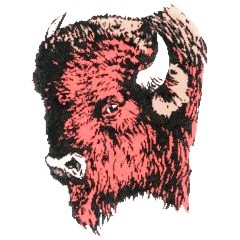Dominik Paris is still haunted by the loss of his brother Rene, two and a half years after his death.
It was Paris who found his older sibling in the road following a motorcycle accident near the family home and, even now, it is a subject the Italian skier understandably finds difficult to discuss.
“That was a very bad time for me and my family,” downhill star Paris tells CNN from his abode in the Alps. “Of course it’s something I still think about, but I prefer to look forward.”
Growing up in South Tyrol, the pair had skis strapped to them from the age of three by their father, a ski instructor who still guides children on the local slopes.
But the brothers were wholly different characters, like chalk and cheese on the mountain.
“My brother was technically the better skier but he did not have the head to race,” Paris recalls. “I was not nervous, I was always the racer. I wanted to go fast … every time. I was the crazy one.”
Craziness is a recurring theme in conversation with Paris, who finished seventh in last season’s overall World Cup standings with six podiums and one Super-G victory in Kitzbuhel.
The craziness is a blessing and a curse. It enables him to travel down the slopes at 150 kph (93 mph) but also nearly derailed his career before it had even begun.
Having left school at 16 — a decision taken because of “problems with my head teacher,” which his parents are still not happy about — he increasingly realized he was taking the wrong path.
“I was young and crazy and I just wanted to go out with my friends and party,” the 26-year-old says. “I didn’t train, I did nothing. I wanted only to race or party, that was it but that was not good.
“I admit it was not right but the problem was I just could not say no to my friends, so I decided ‘enough’ one day. I thought if my friends are not there, I don’t have to say no.”
Paris, who had already done an array of odd jobs including bricklaying, opted to leave home at the age of 18.
He headed to the Swiss Alps and became a herdsman for 100 days — getting up at 3.30 every morning, followed by an intensive training program which ultimately transformed him into a top competitor on the Alpine Skiing World Cup circuit.
“Those 100 days saved me — they made me,” he says. “And no partying.
“I’d decided in my head that I will be a skier. I have to train hard, work hard, and that was when I changed my mind. I finally wanted to be a professional.”
Today, Paris is no stranger to the occasional party, embracing the apres ski as the lead singer of 5 Full Power, a death metal band.
“Okay, maybe singer is not right,” says Paris. “It’s more growling followed by screaming. It’s not radio music, it’s crazy music. The music is crazy, the band are crazy, the fans are crazy. For me, the louder the better.”
He also plays in a folk musical double act with fellow skier Siegmar Klotz, a more sedate past time to hurtling down mountains at break-neck speed.
“I think maybe us downhill skiers are a little crazy,” he admits. “I don’t know how crazy I am. For me, doing this thing does not seem crazy. For me, it’s just normal to go downhill fast.
“Imagine you drive your car on the motorway at 80 kph (49 mph) but then one day you suddenly go 180 kph (111 mph). If you’re going 180 the whole time, you get used to it, it doesn’t feel that crazy. I do this every day, this is me.”
In January 2013, that fearless spirit helped Paris triumph at the most prestigious downhill event on the World Cup circuit.
The race at Kitzbuhel on Hannehkahm’s notorious “Streif” is often referred to as “the Super Bowl of skiing.”
Winning there is behind only the Olympics in Paris’ eyes and ensures membership to an elite club of skiers to have tackled the toughest course on the calendar.
“It’s different to any other race as you have about 60,000 people watching,” adds Paris, who the previous month had finished in the first dead heat at a men’s World Cup downhill in 35 years. “It’s very hard to describe, it’s just so special.”
Paris ended that 2012-13 season by winning silver in the downhill at the world championships, but those highs quickly eroded to a lifetime low with Rene’s sudden death.
The following season proved a virtual write-off, and came to a premature end after he suffered an accident on the slopes.
In a bid to give a befitting memory to his fallen brother, he knuckled down again and turned things around last season.
Ahead of the opening downhill of the 2015-16 campaign at Canada’s Lake Louise this weekend, Paris is confident he can continue his ascent.
“My brother was always very proud of me that I did so well in the World Cup,” he says. “I have that memory of him still now.”



